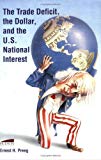Hugo Chavez: The US Bond Market’s Friend
by John Schroy filed under Treasuries, Open Market, Agencies, Mortgages, Corporate Bonds, Leadership
On January 11, 2020, Hugo Chavez Frias was sworn in for a third term as Venezuela’s president, promising to expropriate strategic sectors of the economy, specifically public utilities and oil properties and to generally run rough-shod over property rights and the rule of law.
 President Hugo Chavez
|
||
This is unadulterated good news for the US domestic bond markets.
With socialist or left-leaning governments emerging from the corrupt soup of democratic politics in Bolivia, Chile, Brazil, Nicaragua, and Venezuela, wealthy people throughout Latin America have reason to look out for their wallets.
Building dollar reserves abroad through false invoicing of exports or through the black market is good business and prudent behavior when facing a growing trend towards socialist expropriation of property.
Frightened capitalists in ‘democratic’ regimes help keep the dollar the unofficial ‘world currency’, boosting the US trade deficit, and, as an inevitable result, sending money into the US fixed income market, pushing bond prices upwards.
Lighting a Candle to Saint Jimmy
Countries throughout Latin America are now entering the end game of the ‘democratization’ movement of the continent, which started with US President ‘Jimmy’ Carter’s ferocious attack on the Brazilians that had engineered an ‘economic miracle’ in that country in the 1960s and 1970s.
US bondholders, I suppose, should light a candle to Jimmy Carter, America’s worst president.
Every time he hugs and kisses a socialist dictator, encouraging a developing country to take the socialist road to misery and poverty, capitalists throughout the world shudder and millions more move into offshore dollar accounts that have kept US interest rates falling for a generation.
So I say, thank you Jimmy Carter, thank you Hugo Chavez, for helping to keep US interest rates low.




